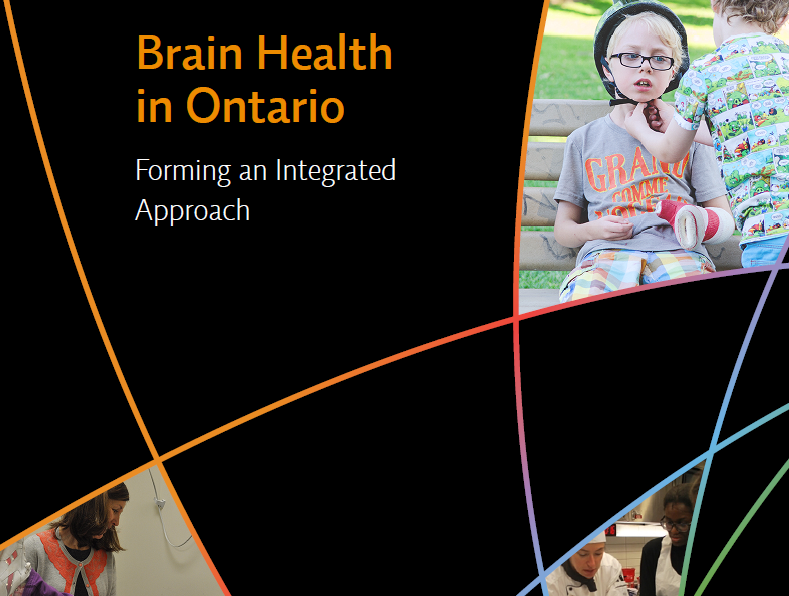Brain Health in Ontario: What we learned and how it was shared

We say it time and time again, the driving force of the Ontario Brain Institute (OBI) is improving the lives of those impacted by brain disorders. We do this by increasing awareness about brain health and sharing knowledge and resources as widely as possible. Yet, there is still so much to uncover in terms of our overall understanding of brain disorders and brain health.
This past February, motivated by the national and global momentum for brain health improvement, OBI released a landmark report titled Brain Health in Ontario: Forming an Integrated Approach. Known as BHIO for short, the report outlines the current state of brain disorders in Ontario and calls for a ‘team science’ approach to brain health research. The report aims to increase brain disorder awareness, promote the adoption of cross-sector collaboration to tackle the needs of the brain health community, and inform program and resource planning, policy, and decision-making to support people with brain disorders.
Using health administrative data, BHIO provides an understanding of the number of people living with or newly diagnosed with a brain disorder, the co-occurrence of brain disorders, and the provincial healthcare system costs. The 13 brain disorders examined in BHIO – defined as conditions linked to, and disrupting of, brain function – are: malignant and non-malignant brain tumours, cerebral palsy, dementia, epilepsy, motor neuron disease, multiple sclerosis, parkinsonism, schizophrenia, spina bifida, spinal cord injury, stroke and transient ischemic attack, and traumatic brain injury, including concussion. By talking with community organizations and content experts, we were able to understand how information on these disorders aligns with what we see in the real-world.
What did we learn?
- One in three Ontarians are living with a brain disorder or will develop one in their lifetime.
- Over 2.45 million people in Ontario have one or more of the 13 brain disorders assessed in this report.
- One in six people with one of the 13 brain disorders assessed will have at least one other co-occurring brain condition.
- When we explored the relationship with mental health and addictions related health service use we found that people with brain disorders sought out these health services two to five times more compared to the average Ontarian.
- The direct healthcare system costs for the treatment of people with brain disorders is two to over ten times higher than for the average Ontarian.
Since February 2023, OBI has spread the BHIO project far and wide. Public-facing infographics for each brain disorder are shared through OBI’s social media platforms and have been accessed or downloaded over 400 times. The BHIO webpage containing data visualizations for advocacy organizations has been accessed over 1,000 times.
This information was also leveraged by the Canadian Brain Research Strategy in their call to the federal government for a Brain Health Moonshot. Executive Director Jennie Z. Young shared, “The BHIO Project, through data-driven insights, unveils the prevalence and interconnected nature of brain disorders, stressing the urgent need for a united front to make brain research a national priority. The impact extends beyond individual lives, resonating through our healthcare system and society. Armed with this knowledge, we bear a responsibility to drive research, innovation, and care forward with comprehensive and substantial investment in brain research in Canada.”
As a champion and advocate for brain health, we hope this report continues to facilitate dialogue and unites the brain health community towards our shared goal of improving the brain health of Canadians. “Knowing the economic and societal impact of brain disorders, it’s time to think and act differently about brain health,” advocates Dr. Tom Mikkelsen, OBI’s President and Scientific Director.
“OBI’s Brain Health in Ontario report reinforces the very real impact that brain disorders have on the individuals and families experiencing them, and the domino effect that can occur throughout our broader society and economy. As Ontario invests in research and innovation across the province, our government applauds OBI’s efforts to drive valuable collaboration among scientists, clinicians and patient partners to transform the way in which we study, diagnose and treat brain disorders.”
